The Unitarian Society, East Brunswick, NJ
November 5, 2017
Part I: faith&doubt
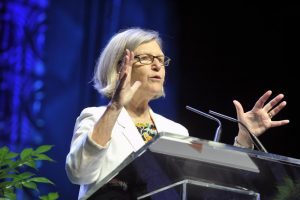
Sister Simone Campbell, the 2014 Ware Lecturer at our own General Assembly, known as one of the Nuns on the Bus, spoke in that lecture about how essential doubt is to faith, for without doubt, faith becomes something altogether else: it becomes certitude. You can see one of her quotes written on your order of service.
It’s interesting that this is a Catholic woman religious speaking of faith and doubt this way. Interesting for two reasons. The first is – and this is for the many folks in the room who grew up Catholic and walked away — because it is likely not what you felt were the lessons you were taught. And secondly, what she has to say is so similar to what the Western Buddhist Sharon Salzberg has to say about faith.
Salzberg, one of the co-founders of the Western iteration of Buddhism called Insight Meditation, which is the stream I swim in, wrote a book, published in 2003, called Faith. In that book, Salzberg writes,
In order to deepen our faith, we have to be able to try things out, to wonder, to doubt. In fact, faith is strengthened by doubt when doubt is a sincere, critical questioning combined with deep trust in our own right and ability to discern truth.
Sounds like Sister Simone.
Let me back up just a bit to talk about what Salzberg means by faith and what are the stages of faith that she identifies. First of all, Salzberg defines faith as independent of any presence or absence of a deity, or as independent of one’s belief system, and as “an inner quality that unfolds as we learn to trust our own deepest experience.”
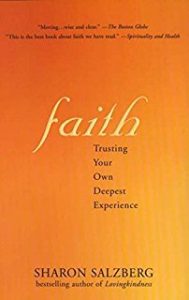
Especially for those in the room for whom the word and concept “faith” is a trigger, for it has been a source of spiritual wounding for many, I’ll say that again:
- Faith is independent of any deity
- It is not about a set of beliefs
- It is an inner quality of trust
According to Salzberg, in Buddhism there are three stages of faith, related to each other with increasing elegance: Bright Faith, Verifiable Faith, and Abiding or Unshakeable Faith.
Bright Faith is like being crushed out on someone. It’s intoxicating. An idea, or a teacher, sparks the imagination. There is a sense of new possibility and openness to a new engagement of the world. While it can be exhilarating, like infatuation of any kind, it cannot and does not last forever.
Next is Verified Faith, which relies less on external sources, and requires more effort because it is fed – and verified – by one’s own intentional seeking and experiences of reality. We move from believing what we are told, no matter how charismatic or wise or persuasive the source, to confirming the truth by our own seeking and examination.
In the transition from Bright Faith to Verifiable Faith, doubt plays an essential role. This is where the skeptics in the room will do a little happy dance. This is where the Buddhist directive to figure it out for yourself resonates with the Unitarian Universalist principle of a free and responsible search for truth and meaning. Listen to what Salzburg says about this:
“It is a common assumption that faith deepens as we are taught more about what to believe; in Buddhism, on the contrary, faith grows only as we question what we are told, as we try teachings out by putting them into practice to see if they really make a difference in our lives.”
But not just any doubt – it must be skillful doubt. This kind of doubt is curiosity, engagement, trying it out, trying it on, seeking to know it by your own experience rather than become someone else, not just intellectually but experientially – that quality of doubt, moves us out of bright faith into verified faith, moves us out of being crushed out into something sustainable over the long haul, over decades, perhaps even over a life time.
The third, and most elegant, is Abiding Faith. This is a kind of faith that personally, I have not often touched, though I have met people – of all different spiritual traditions – in whom I sense this kind of faith resides. This faith remains deep in one’s bones so much so that there is no need for an external reference. I imagine it being a source of comfort and grounding in times of deep uncertainty and distress.
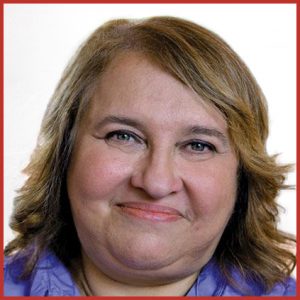
There is a fourth kind of faith – I’m not sure if “stage” is the right word – that Salzberg calls “blind faith.” This can be associated with unthinking devotion or be confused for the fulfillment of a faith journey. This is the kind of blind faith we most often recognize, and sometimes arrogantly, in others. But it can also be fed by unskillful doubt – a different kind of doubt, one that I think we often seen in Unitarian Universalist circles — that takes the form of cynicism, subtle apathy, and undiscerning intelligence, as well as a lack of willingness to venture from our own entrenched way of seeing the world. This kind of unskillful doubt leads with a dismissive edge. As Salzburg says,
[Unskillful doubt] is actually an excuse to remove ourselves from a situation and not put something into practice. We can then stand back and judge, speculate, not commit ourselves, not take a risk, not see what happens if we practice. But all of this is a process of intellectualization; it is not at all from our own experience.
I ask you to hold these ideas about faith and doubt, that faith requires active, skillful doubting, which I think is an easy thing for many in a room of Unitarian Universalists to accept. But I also ask you to accept what is likely harder, again in a room full of UUs to honor: that skillful doubting requires us to try out concepts and ideas by experiencing their possibility, rather than outright dismissing them.
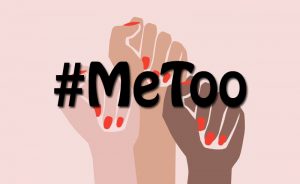
Part II: #metoo
Who recognizes the source of the title of these reflections? I believe. Help my unbelief.
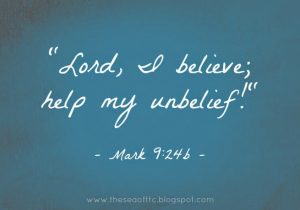
It’s one of my favorite lines in the Christian scriptures, from the Gospel of Mark, one that feels close to my heart.
I couldn’t deliver a sermon with the title containing belief/unbelief, focusing just on the spiritual issue of faith and doubt. Not at this time, given the national conversation around sexual harassment and assault, and generalized-yet-ever-so-harmful misogyny.
Some women, and some men, and genderfluid folx, have been brave – which only means they – we – have faced our fear, not vanquished it – and come forward to say #metoo, a hashtag movement, first started in 2007 by an African American woman named Tarana Burke, and one that came alive in the past month after allegations about Harvey Weinstein, the movie mogul, finally found a full public hearing.
As the NYT Op-Ed writer, Lindy West, has written, it’s not just the past month:
In the past five years there has been a positive deluge of victims speaking out — an uncountable number that represents not just the acute trauma of an unwanted touch or a dehumanizing comment, but the invisible ripples of confidence lost, jobs quit, careers stalled, women’s influence diminished, men’s power entrenched.
This is not the first time our nation has been here. Those of you who remember the Clarence Thomas hearings, when he was nominated to the Supreme Court, and what Dr. Anita Hill went through to tell her truth, to speak the truth of so many women, facing the race-tinged misogyny of elected (male) representatives as they interrogated her, not him.
Not enough has changed since then, given the ever-expanding list of powerful men who are being called out for misusing their power in highly gendered and sexually aggressive ways. Not enough has changed, given the ways in which so many forms of cultural dominance are used to exclude, or marginalize, or harm, and even kill. I am thinking here of the inequities and outright harm (including violence and loss of life) within our criminal justice system disproportionally visited upon communities of color. How the numbers of trans women, particularly of color, who die violent deaths continues to grow each year. Last year 23 trans women met violent deaths in this country; already this year, with still nearly two months until the calendar’s end, 24 have been killed.
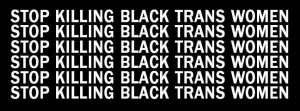
So, if failure to take as true these victims’ realities is a symptom of cultural disbelief, then what might it look like if we were to practice believing? And while, yes, I mean this when it comes to those trans women’s lives cut short, and what so many communities of color have been saying for way too long about how they are mistreated, I am also talking about any women close to home, ones known to you, perhaps loved by you: women and girls and people who born into girl bodies. What if we were to turn the Gospel of Mark, particularly for those of us with privileged identities, such as being white, or being heterosexual, or male, or cisgendered — on its head and say, “I have unbelieved. Help my belief.”
What might the world look like? What might our world look like? Can we imagine it, a world without sexual harassment? Without implied or realized violence based on gender? Can we create it here? Can we create a space where belief is what we offer, not unbelief? A whole-hearted, public unbelief that just might heal the personal shame, the individual stigma, that too many women have taken as our own, have internalized?
One thing, small but not small, when it comes to sexual violence, is to stop using the passive tense. Instead of asking how we can stop women from being harassed or raped, we can start asking, how and when will men stop harassing or abusing or raping? When will some men stop other men from doing these things?
If thoughts taking shape in your mind are these: — not all men harm; not only women are harmed – I ask you to slow down, notice, and stay with me. While true statements, I ask you to practice that skillful doubting that Sharon Salzberg introduced to us – instead of countering the question with cynicism or skepticism, try curiosity, like asking yourself why the discomfort? why the need to defend or dilute? Instead I ask you to choose to make space for this particular hurt that women are naming at this moment in time.
What else to do? For anyone who has experienced harassment or assault, first and foremost, always is finding ways to be and stay safe.
And then, when possible, speak up.
Tell your truth.
Listen to the truth of other women.
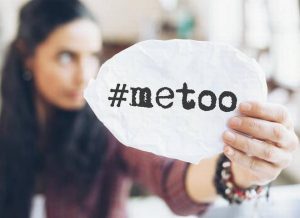
Believe them.
Believe us.
This is a powerful moment and the momentum is building. This is not just glamorous movie stars, or ones wishing they could be. This is women in every walk of life and for those women
with added layers of vulnerability due to marginalization, like women of color, like women who are economically disadvantaged, like women who are disabled, we must acknowledge and believe the hazard is higher.
The more who share their experience, the more can see themselves in this act of courage, in your act of courage and survival, and add their voice and their story.
#metoo
Change can come. Change will come. The more we coax it along, the more likely it is to be the arc of the universe bending towards justice. It was only after the public spectacle of those hearings with Dr. Hill that complaints of workplace sexual harassment began to be officially filed in strong numbers. Collective visibility, while painful, can also be empowering. It reminds us that none of us is ever alone.
For folx who identify as men in the room, you can read and add your name to a document created by Rev. Rob Keithan, the UU social justice minister at All Souls in Washington, DC, who co-founded a response to the #metoo movement called, #wecommit, which is a “Declaration of Response and Responsibility from the Undersigned Men.” The declaration begins
To all the people–and especially the women and gender nonconforming people–who have publicly self-identified as experiencing sexual harassment or assault: We hear you. We believe you. We support you. And we know that there are countless others who choose not to or who cannot safely self-identify as having survived harm and violence. We understand that you should not have to share personal stories or re-experience trauma in order for men to take responsibility for our role in perpetuating sexual harassment and assault. And we know that we must do more than just acknowledge your experience with our words.
How powerful to hear those words from the mouth of a man – a co-worker, a lover, a brother, a friend:
- I believe you.
- I want to support you.
- What can I do?
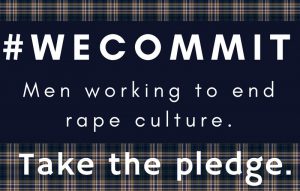
What else is there to do? All of us can learn to be upstanders – when we see or hear something with an ick-factor directed at a woman – it need not even fit some hard-to-define category called “abuse” – we can say something. If you cannot interrupt the act or words, reach out to the person who was its target. Too often, and without our intending it to be so, our silence comes across as endorsement and we become complicit. This is true about misogyny, but also racism, assumptions about heterosexism as the norm, and other forms of cultural hegemony. Instead of being a bystander to this, you can be – we all can choose to be — an upstander.
We all have the power to create an environment for victims of sexual violence and harassment that will meet them with empathy and support, and help give them the confidence to speak their truth without fear or shame. This is not theoretical. After the musical interlude, it is the time in our service for prayer and meditation. Today, this prayer will include an invitation to women in the room who understand themselves as part of the #metoo movement, to come forward and be seen and believed in this place that is your spiritual home. The invitation will include one to men to be our witness, to hold these realities in the spirit of belief, offering that powerful validation that amplifies healing, that is part of building the world we dream about.
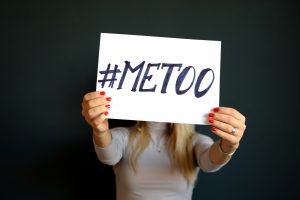
Part III: what if?
The most powerful invitation of faith I have been exposed to this past year – not requiring me to believe, but asking me to trust, offering up inspiration, delivered with contagious confidence – came in the form of poem from the Sikh lawyer and community organizer, Valerie Kaur.
I share this poem with you today as a way to bring together Parts I and II, the first on the symbiotic relationship of doubt to faith, the other on the mandate to believe in the midst of societal unbelief. I offer it here, in part, because it names this era’s divide not only between political stances and ideologies, or faith and doubt, but also hope and despair. I offer it here, because it asks some powerful “what if” questions.
In a speech Kaur gave last New Year’s Eve (see video above), with such heartbreak in her voice, she reflected on her experience as a parent:
I am leaving my son a world more dangerous than the one I was given. I am raising – we are raising – a brown boy in America who may one day wear a turban as a part of his faith. And in America today, in an era of enormous rage, as white Nationalists hail this moment as their great awakening, as hate acts against Sikhs and our Muslim brothers and sisters are at an all-time high, I know that there will be moments – whether on the streets or in the school yard – where my son will be seen as foreign, as suspect, as a terrorist; just as black bodies are still seen as criminal, brown bodies are still seen as illegal, trans bodies are still seen as immoral, indigenous bodies are still seen as savage, the bodies of women and girls still seen as someone else’s property, and when we see these bodies not as brothers and sisters then it becomes easier to bully them, to rape them, to allow policies that neglect them, incarcerate them, to kill them.
And then she spoke her poem, only an excerpt of which I offer here:
What if this darkness is not the darkness of the tomb, but the darkness of the womb?
What if our America is not dead but a country still waiting to be born? What if the story of America is one long labor?
What if all the [ancestors] who came before us, who survived genocide and occupation, slavery and Jim Crow, racism and xenophobia and Islamophobia, political oppression and sexual assault, are standing behind us now, whispering in our ear: You are brave.
What powerful images: not doom, not tomb, but womb. That these increases in hate crimes, that these ever-continuing assaults on women, that these might be, cause for eventual hope, rather than for ultimate despair?
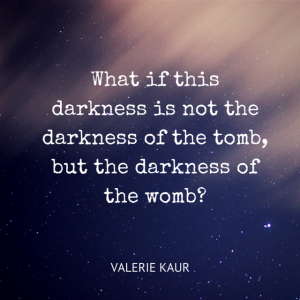
What if this movement of #metoo and #sayhername and Black Lives Matter and naming white supremacy in our midst and backlash against the browning of America is moving our whole society toward a long overdue tipping point?
What if we might be able to leave behind all forms of our unskillful doubt and exchange it for the skillful kind that engages curiosity, suspends disbelief of those different from us, and allows us to see a new world that is in the midst of being born, that is asking us to be midwife to it?
Let this be the time and let it be our task to join the midwifing of this moment.
May it be so. Amen. Blessed be.
References
Salzberg, Sharon.
Interview, Wisdom Publications, June 28, 2016. https://learn.wisdompubs.org/podcast/sharon-salzberg/
Faith: Trusting Your Own Deepest Experience, Riverhead Books, 2003.
http://www.oprah.com/omagazine/sharon-salzberg-on-faith
(Sharon, https://www.sharonsalzberg.com/faith-2/)
Sola, Esther. http://www.sfchronicle.com/opinion/openforum/article/MeToo-believing-survivors-of-sexual-abuse-12285699.php)
West, Lindy. https://www.nytimes.com/2017/10/17/opinion/columnists/weinstein-harassment-witchunt.html
One thought on “I Believe. Help My Unbelief. (sermon in three parts))”